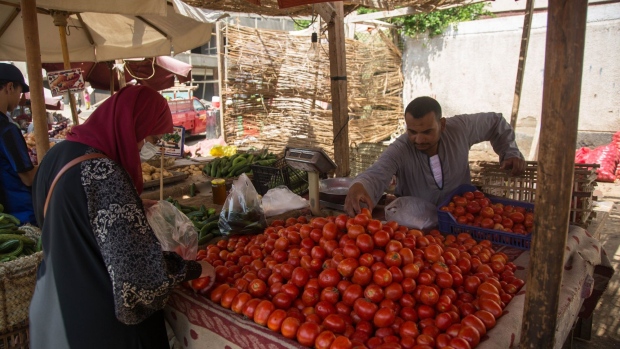Aug 10, 2022
Egypt Inflation Quickens Again as Fuel-Price Hike Adds to Angst
, Bloomberg News

(Bloomberg) -- Sign up for our Middle East newsletter and follow us @middleeast for news on the region.
Inflation in urban parts of Egypt quickened after a month of cooling off, as rising food prices and a local hike in fuel costs added more pressure to consumers in the largest Arab nation.
Consumer prices climbed 13.6% year-on-year in July versus 13.2% in June, the state-run statistics agency CAPMAS said Wednesday. A 22.4% annual rise in food and beverages, the largest single component of the inflation basket, was a major driver.
On a monthly basis, the inflation rate increased to 1.3%, from negative 0.1% in June.
The renewed acceleration, which came after a surprise slight slowdown in June, reflects a brace of other new costs for citizens in the North African nation that’s been hit hard by the economic shock waves of the war in Ukraine.
Authorities raised fuel prices in July, likely contributing to a 17% annual rise in transportation costs, according to Bloomberg calculations. As a combined inflation component, housing, water, electricity and fuel climbed 5.2%. Consumer prices have also been under pressure from the effects of a March devaluation of the pound.
Core inflation, a gauge that strips out volatile items like food, accelerated to 15.6% in July from 14.6% the month before, the central bank said. That’s the highest since December 2017, according to Bloomberg data.
Months of accelerating price gains have weighed on Egypt’s inflation-adjusted rate, which has turned negative and undercut the country’s appeal to foreign investors in domestic bonds and bills. The country has seen $20 billion in foreign outflows from its local debt market this year.
July’s figure may give the central bank further impetus to raise interest rates when it meets on Aug. 18. It delivered its biggest hike in nearly half a decade in May.
(Updates with core inflation in sixth paragraph.)
©2022 Bloomberg L.P.






